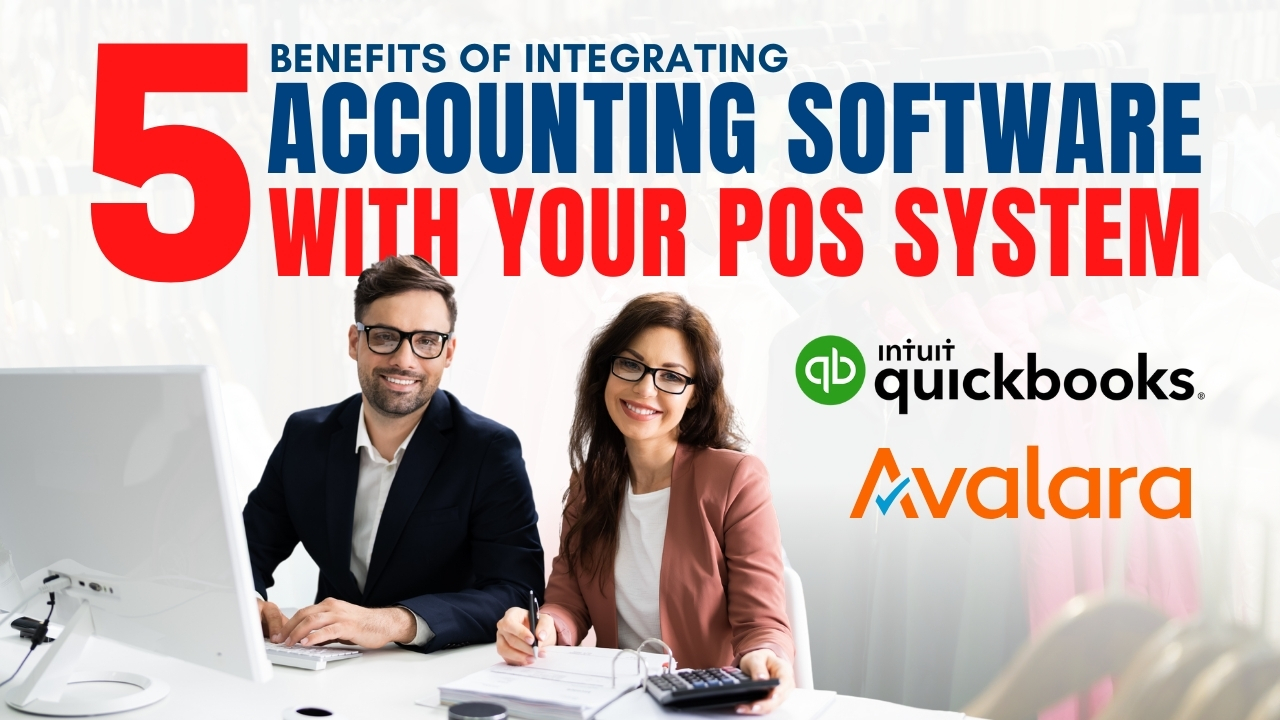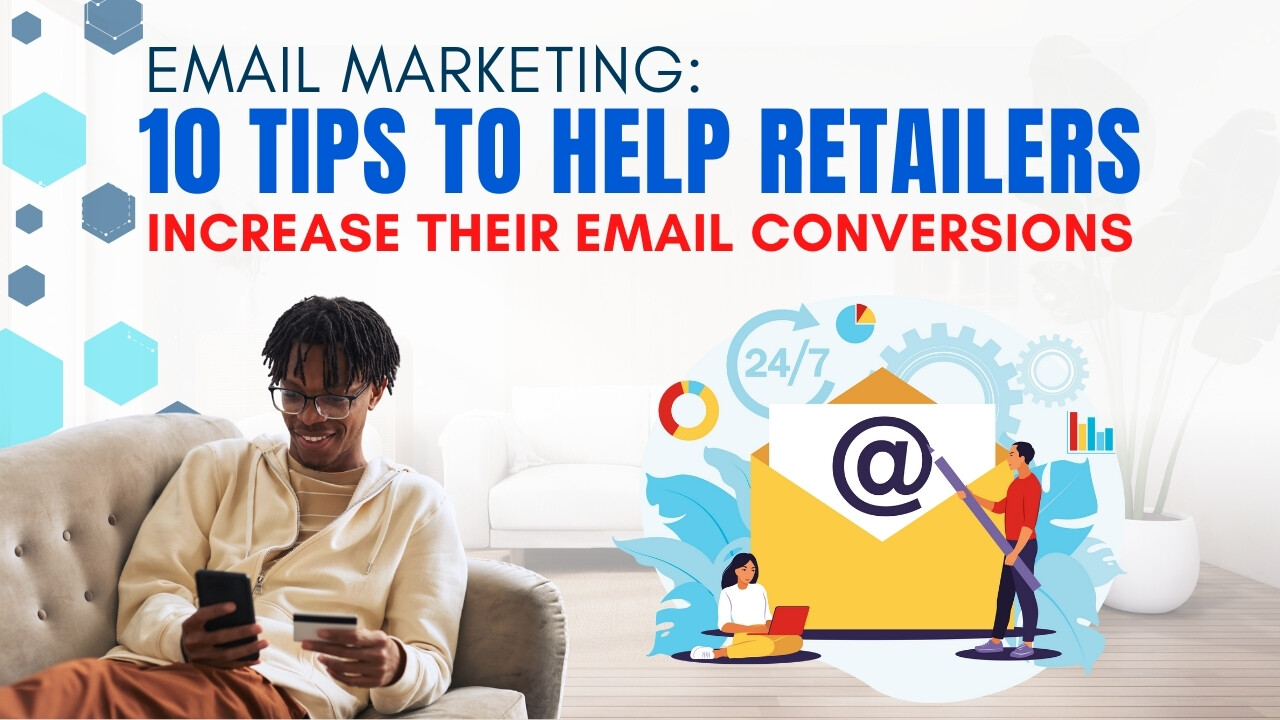Blog
5 Benefits of Integrating Accounting Software with Your POS System
April 1, 2024 / 8 minute read / By Nick Borowitz
 2024
2024Blog
 2024
2024Reconciling the financial data of your retail business can be an arduous task. There are daily transactions from the point of sale system, daily staff labor, cash and credit balances, inventory costs and performance, and taxes to pay, to name a few.
Many business owners still do everything old-fashioned: downloading records, manually transferring the information into one source, and finishing it by balancing spreadsheets.
That can be daunting for small to medium-sized retailers, such as mom-and-pop shops or medium-sized retailers with a foot-hold in a community.
Thankfully, we’ve assembled this handy guide to share five benefits of integrating accounting software with your point of sale system. We can sum them up as such:
1. Streamline Business Management with Accounting Software
2. Simplify Tax Compliance with Accounting Software Integrations
3. Scale your Business with Flexible POS and Accounting Software
4. Integrate Accounting Software to Improve Customer Service and Loyalty
5. Improve Inventory Management with Software Integrations for Accounting
Efficient retail operations management is vital for success. Integrating accounting software with the point of sale system allows for seamless financial data management.
This integration provides insights into orders, cash flow, labor costs, logistics, and other factors that must be accounted for regularly. Combining these processes enables retailers to make informed inventory management and forecasting decisions.
How this Works:
When running reports from either QuickBooks Online or QuickBooks Desktop, you want to look for at least these two things: the ability to verify transaction information directly at the point of sale and the reporting module itself.
Since Quickbooks is a prevalent accounting software that many business owners use to track finances, the software is commonly adaptable to other programs. Programs such as Sage 100 and Microsoft Dynamics can also be considered by retail business owners.
Many retailers are still using QuickBooks Desktop, and are considering the upgrade to QuickBooks Online- but that is an entire other discussion, which you can learn more about via the link below, if this applies to you.
Navigating tax regulations can be complex for retailers. Businesses can automate sales tax calculations and reporting by integrating accounting software with the point of sale system. Automation ensures compliance with local, state, and federal tax regulations, reducing the risk of errors and penalties.
When you add eCommerce, the accounting software integration should be able to apply, remove, or reduce the tax amount properly. In addition to the above-listed local, state, and federal taxes, there are additional fees for eCommerce sales.
Below are some examples of how an integrated accounting software can help with your eCommerce sales:
Because tax laws can be complex and ever-changing, the provider’s development team must stay updated with the latest tax regulations and be ready to address any challenges. If a specific tax requirement is difficult to meet, the development team works to ensure compliance.
Since most retailers already have limited time and too much already to worry about, simplifying this process and ensuring you are always charging the appropriate tax is made easy when your POS and eCommerce system integrates with sales tax automation, such as Avalara.
Learn More: Automating Sales Tax and Compliance with Avalara
As businesses grow and evolve, scalability and flexibility become critical factors. Integrating accounting software with the point of sale system provides businesses with the flexibility to adapt to changing requirements.
This system should accommodate the scalability needs of growing businesses, offering customization options to tailor financial reporting and analysis. This flexibility ensures the integrated system remains adaptable and responsive to retailers’ evolving needs.
More often than not, when a retailer wants a new function created, the POS system provider offering the accounting software integration will be the one to develop it. The task of mapping data points will fall onto the retailer since they’re using the software, but your POS system software trainer should be able to guide you and assist with the process.
Beyond having sales data immediately available for viewing and analysis, retailers must ensure their reporting software is accurate. An easy-to-navigate interface with extensive functionality from a POS system provider that can fine-tune your reporting should be at the top of the list. An added bonus is a retail software with a custom report designer, in which you can create any financial report, on the fly, to help you better track your company’s performance.
Delivering exceptional customer experiences is essential for building loyalty and retention. By leveraging integrated retail systems to provide personalized experiences and improve operations, retailers can create lasting impressions on their customers and strengthen their brand reputation.
Automated accounting integrations with your POS system mean that the charges or price adjustments are automatically adjusted in the point of sale and reporting software when the above actions occur. This saves retailers time by eliminating the manual effort needed to do calculations by hand or within spreadsheets that might contain an entire day’s transaction activity.
Efficient inventory management is essential for retailers to maintain a competitive edge in the market. Integrating accounting software with the point of sale system offers real-time insights into inventory performance, empowering businesses to make informed decisions and optimize stock levels.
By leveraging integrated systems, retailers can efficiently manage inventory, cut costs, and boost customer satisfaction, driving business success in a competitive market.
The future of POS and accounting software integration holds promising advancements that will continue to benefit retail businesses in managing their finances.
Augmenting management with real-time insights enables informed decision-making. Automated tax compliance reduces errors and ensures regulatory adherence. Cost savings and profitability have significantly improved through efficient processes and data synchronization.
Scalable and flexible systems adapt to evolving business needs, fostering customer loyalty and optimizing inventory management. As technology evolves, we can anticipate more seamless integration, enhanced automation, and improved scalability to meet the growing needs of businesses.
When you are reviewing POS systems, it’s important to find a POS provider that integrates with whichever accounting software your business is using. Ensure that your POS provider is committed to providing one-on-one support and expertise in implementing and optimizing integrated POS and accounting solutions, helping guide you all throughout the process.
Learn how you can take control of your finances with flexible accounting options.
 Explore four simple strategies to keep your first-time buyers coming back (with a little help from your… |
 How can retailers improve their email marketing metrics to achieve higher open rates, click through… |